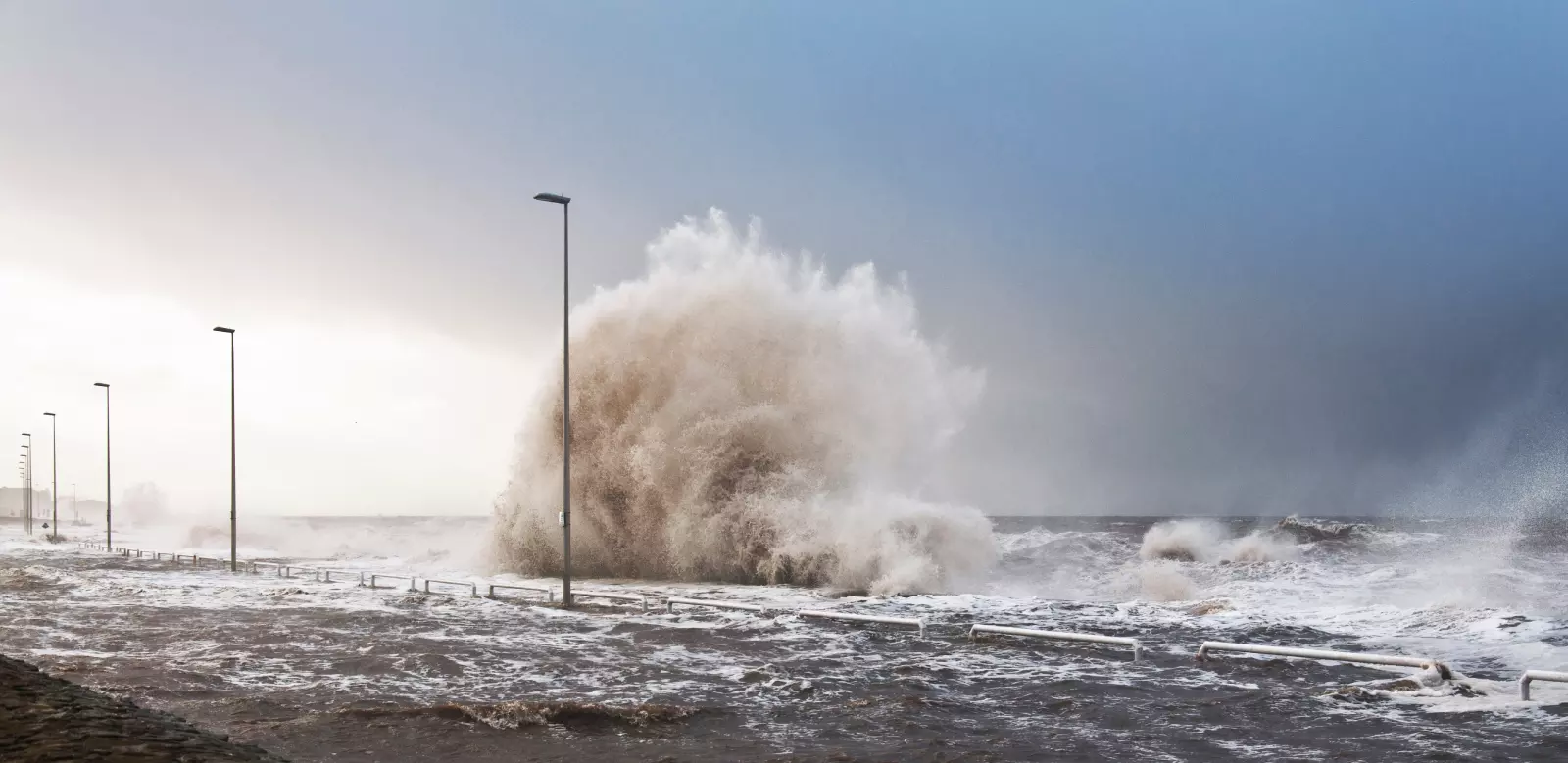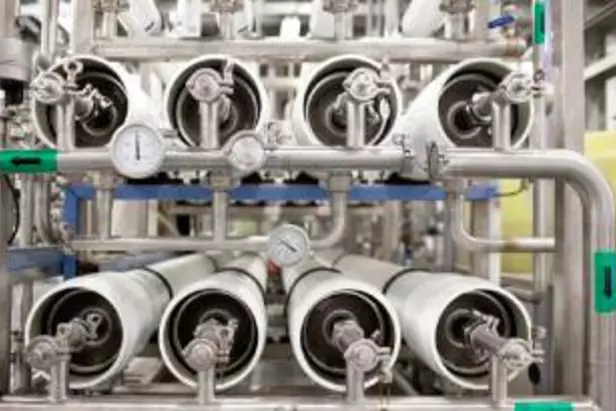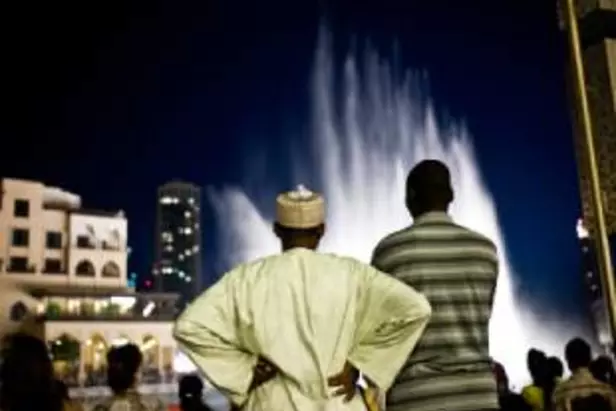Water is a precious natural resource
Whether it is present in the oceans, rivers, clouds or glaciers, the amount of water on the planet is fixed and will never change. What does change is its condition, its geographical distribution and its quality. In other words: its availability to us humans.
With the world's population set to grow to almost 10 billion by 2040, the need for water is increasing considerably, both for drinking water and for industrial use. According to UN estimates, more than 1.8 billion people are facing water scarcity, and over two-thirds of the world’s population live under conditions of extreme water stress.1
Veolia commits to saving 1.5 billion m3 of fresh water by 2027.
Added to the problem of access is the issue of water pollution. According to the UN, more than 80% of the world's wastewater is discharged into waterways without any form of treatment. Not only does this prevent its reuse, it also pollutes the natural environment and makes access to quality water even more complex.
Finally, new challenges are emerging in the management of water and its cycle, including the increased presence of endocrine disruptors, the threat of terrorist attacks on installations, and the growing impact of climatic disasters. We have a lot of work to do on all these fronts.
Floods, storms, droughts, coastal flooding, etc. 90% of natural disasters are water-related.2

We are involved throughout the water cycle
It all starts with pumping water. This is done either from groundwater, a lake, a river or a stream. We always choose protected sites, with no human or agricultural activity nearby, in order to obtain quality water. Extraction is carried out in a controlled manner, so as not to exhaust the resource.
To become drinkable, the water we take is then treated. It is filtered, screened, undergoes polishing treatment with activated carbon, disinfected with ozone or UV, etc. It goes through a whole series of tests, without losing its mineral content, and receives only one drop of chlorine for the equivalent of 5 baths.
Then it is time to distribute the water to our customers and individuals. From production to tap, it passes through a complex system of pipes. In France, for example, we check its quality more than 3 million times a year, making it the most controlled food product. We take a holistic approach to water management.
Finally, once used, the water can be returned to nature or reused. We pass it through a wastewater treatment plant where it is extensively treated and cleaned. This produces sludge with a high nitrogen and phosphorus content, which can be reused as fertilizer or as a source of energy.
Our approach to better water management
We have a holistic approach to water management. Water cannot be considered as a commodity: it is an environmental and social asset requiring complex management. This is why our solutions are at the crossroads of technical, institutional, organizational, regulatory, financial, societal and environmental issues.
Drinking water treatment and distribution
We provide our customers with quality drinking water, while reducing and optimizing their consumption. Whether they are cities, commercial buildings or industries, cost control, regulation, service continuity, resilience and improvement of the environmental footprint are at the heart of water management issues. Our comprehensive and innovative solutions make us a true strategic partner for our customers.
Municipal wastewater collection and treatment
To meet the twofold challenge of climate change and water stress, we optimize the operation of community wastewater networks. First, to adapt them to extreme weather events (drought, flooding, etc.), set to become increasingly frequent and intense. Secondly, to ensure the safety and quality of life of residents. Finally, to increase the reuse of treated wastewater.
Optimizing the water cycle for industry
We help industrial companies to improve how they manage their water cycle. Industry accounts for nearly 19% of water extraction worldwide. From design to installation and operation, we work with a wide range of clients in all sectors. We also collect and treat wastewater, and return it to nature or give it a second life.
Performance and supply of drinking water to buildings
We provide private building managers with quality drinking water. This is a major issue for occupants, in terms of both comfort and health. We therefore provide a unique solution to guarantee the performance of water networks, energy efficiency and resource availability. Our protocol has three stages: audit, on-site measurements and action, which is accompanied by accurate reporting of the private network’s performance.
Energy efficiency in water cycle management
We maximize the energy efficiency of our water networks. When you consider that, according to the UN, 8% of the world's energy production is used to pump, treat and distribute water, this is a critical issue. Our more than 6,000 water-related plants around the world are responsibly managed through a range of services to improve their energy efficiency and produce more renewable energy. Our energy efficiency solutions are aimed particularly at our municipal customers.
Municipal water softening solutions
We provide solutions for local authorities to control the lime content of their water. In small doses, the mineral content in water is beneficial: calcium and magnesium contribute to the proper functioning of the body. But when they are present in greater quantities and the water is said to be "hard", or even "very hard", this poses problems, particularly in terms of scale deposits in pipes and household appliances, and can cause dryness of sensitive skin. This is why we provide support to our customers wishing to soften their water.
Our solutions to optimize the water management
- Optimize performance
- Secure private water networks
- Protect the resource and users
- Reduce environmental footprint
- Lower costs
- Energy recovery
The Veolia difference

We did it!

China
We designed a new facility for the L'Oréal factory in Suzhou, China. It optimizes the treatment and recycling of the plant's wastewater and reduces its energy consumption by 8.5%, which is reflected in the operating costs.

United Arab Emirates
We installed a wastewater treatment plant to recycle water from an artificial lake near the Burj Khalifa Tower in Dubai, United Arab Emirates. The plant uses Veolia's Actiflo Pack clarification solution to treat 62,400 m3/day of water, or 2,600 m3/hour.


